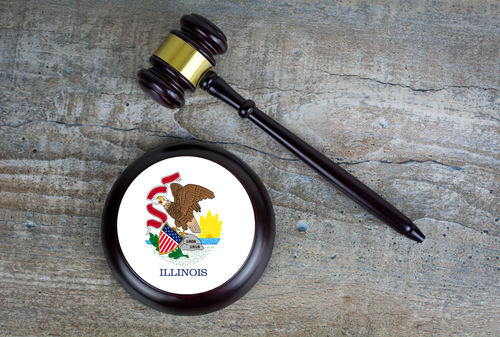Second groundbreaking ABA AI and economic justice webinar set for April 26
By The AI & Economic Justice Project of the ABA Section of Civil Rights and Social Justice
On April 26, the ABA, in partnership with the National Association of Consumer Advocates, will host “AI and Consumers: The Invisible Impact on Economic Justice”—the ABA’s second webinar in an ongoing series on artificial intelligence and economic justice issues.
This upcoming webinar, which will be held from 2:30 p.m. to 4 p.m. ET, will include a presentation of the harms created by or exacerbated by automated decision systems, or “ADS,” as they relate to consumer law issues, such as lending and debt collection, and an overview of responses from a recent ABA survey on consumer law and ADS. Panelists on April 26 will include attorneys from the private and public sectors, as well as from civil society groups.
You can watch the first webinar in the series and find supplemental resources at “AI Essentials for Lawyers: What You Need to Know to Protect Your Clients in the Digital Age.”
How did the ABA get here?
At the end of 2022, the ABA Section of Civil Rights and Social Justice began reaching out to various committees, sections and divisions of the ABA to engage them about launching an AI & Economic Justice Project within the ABA.
This AI+EJ Project would organize an ABA-wide convening to better understand the impacts of AI and automated decision-making systems on low-income communities and other marginalized groups, as well as relevant legal frameworks, to help inform the development of a questionnaire.
In April 2023, more than 100 ABA members and representatives registered to attend a convening to review and edit an early draft of the questionnaire. The questionnaire was released in summer 2023, with preliminary results published in December.
In addition to general, catchall questions, the questionnaire included specialized questions on activities in the following domains: automated systems, public benefits, criminal justice, consumer issues, data privacy, immigration, public education, public housing/benefits and AI use and procurement.
This webinar series is structured around some of the lessons gained from that questionnaire, including presentations on consumer law, education, criminal justice, housing and public benefits and international/global issues.
This series is designed to help raise awareness within the legal profession of several AI-related issues impacting marginalized groups and to brainstorm possible ways to address them—issues such as deliberate and implicit bias, predatory and unintended misuse, lack of transparency, challenges with digital literacy and restrictions on access to justice.
Looking ahead, the AI+EJ Project aims to address issues such as what existing legal frameworks (e.g., statutes, regulatory action, caselaw) can be most helpful here, where do we need new legal tools, and what content and other nonlegal actions (e.g., whitepapers, webinars, proposed ABA policy) can help to achieve the biggest impact here.
The Civil Rights and Social Justice Section published preliminary results from the inaugural questionnaire on AI and economic justice in December. In short, while some survey respondents indicated that they were familiar with tools such as automated surveillance, fraud detection, generative AI and risk scoring, nearly half indicated that they didn’t know when those systems were being used, and the vast majority felt uncomfortable explaining how those systems worked.
More results from the questionnaire will be shared in this webinar series and in forthcoming AI+EJ Project publications. The AI+EJ Project anticipates that future questionnaires will be developed and distributed in partnership with the National Association of Consumer Advocates—with the results shared in additional public reports and presentations for the benefit of ABA members and the legal profession more broadly.
AI webinar series details
Here is the full series schedule:
• Now available on demand: “AI Essentials for Lawyers: What You Need to Know to Protect Your Clients in the Digital Age”
• April 26: “AI and Consumers: The Invisible Impact on Economic Justice”
• May 22: “AI in Education: Addressing Biases and Discrimination, Privacy & Surveillance”
• June 18: “AI in Criminal Justice: Automated Decision-Making Tools and Technology, From Policing to Corrections”
• June 27: “AI in Housing and Benefits: Automating Discrimination, Enhancing Surveillance, and Scaling Bias”
• July 16: “Going Global: Seeking Redress Against Digital Harms Beyond the US”
Get involved
The AI+EJ Project welcomes your interest and support. Email [email protected] for more information about how you can help.
Updated on April 25 to add the time of the April 26 webinar.






